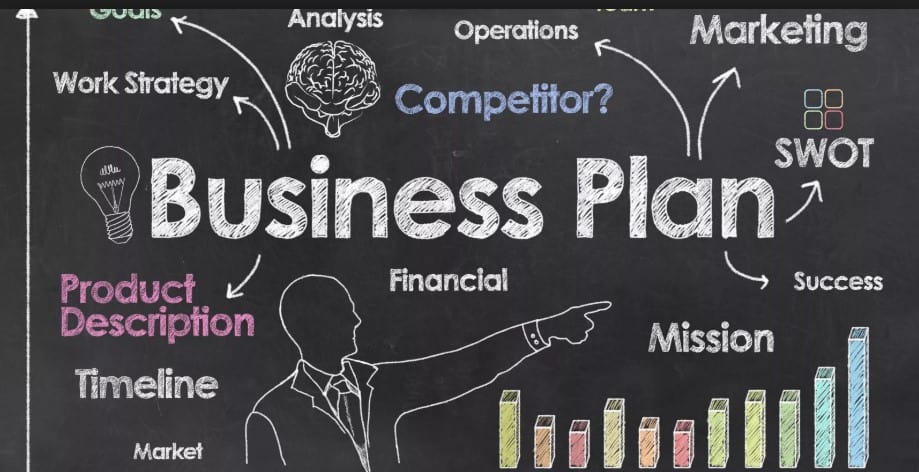How to Start an E-commerce Business in Nigeria [Full Guide]
It’s no news that learning how to start eCommerce business in Nigeria is one of the smartest and fastest ways to amass wealth. Most especially in this 21st century.
In a country of over 180million residents. This includes over 90million being internet users could be accredited to the success of e-commerce in Nigeria.
We have various mini e-commerce business owners in Nigeria making over 8figures in profits with their business.
The term “e-commerce business in Nigeria” doesn’t necessarily mean you have to have a website like popular Jumia, konga etc.
Having these kinds of notion has made most people believe you need to have substantial capital in other to run a successful e-commerce business.
Don’t get me wrong, this business model is in stages and there’s nothing stopping you from starting small.
Before we proceed to learn how to start ecommerce business in Nigeria let’s try and understand the concepts of e-commerce in Nigeria.
What is E-commerce & How does it work in Nigeria?
E-commerce is simply a sales transaction that takes place over the internet in other words electronic commerce.
The e-commerce business actually started way back around 1960 when electronic data was introduced into the business.
The growth was revolutionized by the rise of Amazon and eBay in the 1980s and the entire story has changed since then.
E-commerce is categorized into six major types with each having its features and attributes.
Types of E-commerce Business
- Business –to – business (B2B): this refers to the exchange of products and services between businesses rather than business and consumer.
- Business – to – consumer (B2C): selling of products and services from a business to the consumer. This is the most popular e-commerce business.
- Consumer – to – consumer (C2C): this is the type of e-commerce business in which consumers exchange products and services directly to each other online. This is usually done through a third party platform online.
- Consumer – to – Business (C2B): this kind refers to the process whereby individuals make their products and service to be sold to companies. Or an individual that’s rendering service for a company over the internet. E.g. logo artist or a freelancer.
- Business – to – Administration (B2A): business to administration is the business transaction between companies and governments. This could be private companies providing services for the public administration.
- Consumer – to – Administration (C2A): finally, consumer to administration is the transaction between individual and public administration. A good example is an electronic tax filing.
As you can see, you don’t have to run operations like Jumia and Konga to start a successful e-commerce business in Nigeria.
Since that’s settled, let’s look at this list of business ideas that have the potential of e-commerce business in Nigeria.
- Cake Baking
- Wedding Planner
- Makeup Artist
- Corporate Event planner
- Fashion Designer
- Handmade Goods Seller
- Product Retailer
- Mini Importation
- Catering Service
- Social Media Manager
- CV Writer
- Public Speaking Coach
- Dating Coach
- Photography
- Investment Advisor
- Relationship Coach
- Business Consultant
- Natural & Organic Beauty Shop etc.
What makes a business an e-commerce business is the ability to transact online!
Having a small business website around the above ideas is enough! So far your website is integrated with a payment gateway that can easily allow customers to book and pay for your product and services!
How to start eCommerce Business in Nigeria with 7 Simple Steps
Now, we’re going to be looking at the various necessary steps. This includes what you need to do in other to have a successful e-commerce business in Nigeria.
Step One: Secure Your Business Name with CAC
First thing first. Immediately you decided on what you want to sell or the service you want to render.
You’ll need to choose a nice and memorable business name for it that no one is using. Once you’ve done that, conduct a corporate affairs commission (CAC) search for the name to see if it’s available.
If it’s available, you’ll need to register your business immediately.

Name search for CAC is usually round #500. But if the name is not available you’ll need to pay for another 500 Naira to search for the name.
So, while searching, it’s always important to come up with a unique name. Make sure this name is not similar to any branded company already.
Once your name is reserved, you can then pay the actual fee to register it. This is usually around 10k depending on your business.
Step Two: Secure Your Domain Name online
It is necessary to create a website around your business if you truly want an online exposure for your business. But not everybody might be ready to do that right away.
The downside to this is that the name you had in mind for your website might be taken at any moment. That is if you didn’t secure it alongside your business name immediately.
So, check if your domain name is still available using NameCheap.com. That is, the name you have in mind for your website.
You can also decide if it’s going to end with “dot com” or “dot ng” etc.
Once you find it available buying it now might be a good decision as it always less than N3,500 to acquire a domain.
This way, you can later build your website whenever you’re ready to do so since your domain name is secured.
However, if you’re ready to create your e-commerce website right away I’ll recommend you go with BlueHost. Since it’s one of the best reliable hosting providers out there.
Plus you’ll get your domain name for free with them
Step Three: Draft Your Business Plan
Depending on your business type, a good and solid business plan will always come in handy. Most especially for those that will be selling physical products.
This way, you having a ready masterpiece of what to work with will prevent you from deviating from the original plan.

Having your business plan in place will provide a good atmosphere for both business and consumers. At least you won’t venture into the business blind and this will protect you against unnecessary loss.
Step Four: Build Your E-commerce Website
Since the concept of e-commerce is to transact online then it only a necessity to create your e-commerce website as soon as possible.
Setting up your e-commerce website is more like creating the traditional brick and mortar store except for this time, transactions are done online.
This will allow your website to be easily accessible to a different customer across states in Nigeria or nationwide.
While creating your website it is important you put into consideration the kind of hosting provider you’ll be using. Because this will determine how well your website performs online.
For this, I’ll rather recommend Bluehost.
However, the cost of building an e-commerce website in Nigeria depends on the platform you’re using.
Using WordPress plus Bluehost can cost less than 60k depending on the package you’re starting with. Another simpler option to this is by using Shopify.
Step Five: Stock Inventory
Having your products available is the next thing to do. For those that plan on selling digital products and services, they don’t have to worry about this step.
Mini Importation has been one the most popular and fastest way to get started with e-commerce business in Nigeria for those that are into physical products.
And for this step to work, if you’re starting big then it’s recommended to get an apartment to stock your product inventory.
If not, you could start by stocking products in your house instead of paying an additional cost to get an apartment.
Additionally, you don’t need to get an office space for now because hardly will any customer comes to buy a product in person from you.
So for now, your apartment should be your office and warehouse if possible.
Step Six: Partner with a Logistic Company

This step is very important. Once you have your products available and before you start running adverts. You should partner with one or two logistic companies that will help with the mobility of your products.
One of the advantages of e-commerce business is that you’re not restricted to any particular location like the traditional store.
You should be able to sell to any part of the country with your products reaching your customers as fast as possible.
But mind you, this can only be done through the help of a reliable logistics company. They will be the one to deliver the products and at the same time help you collect cash from your customers. This is if you are running cash on a delivery system.
Below are a few recommended logistics company to start with.
- Courier plus service limited (Nationwide)
- Gig Logistic
- SkyNet (Nationwide)
- Austin Dispatch (Lagos only)
Step Seven: Advertise Your Business
You’re simply taking your business to the next level with this inevitable step. The truth is nobody is going to know about your business except you take it to them via advertisement.
The cost of adverts will depend on how deep your pocket is.
However, spending much on adverts doesn’t necessarily means it going to convert well. You just need to know what’s working and find a way to replicate it.
Before you start running an advert for your business I’ll suggest you do extensive research on how to run ads. Having more experience of this will give you an advantage. And it will also protect you against wasting money on ads that don’t convert.
Below are a few examples of ad platform you can use to promote your business:
- Facebook ads
- Google ads
- Native Ads
- Local Newspaper
- Social media influencers
If you can effectively engage this network it’s going to be a greater turn over for your business.
Pros of Starting an E-commerce Business in Nigeria
Let’s talk about a few of the benefits of e-commerce business in Nigeria and how you can benefit from it:
- Global Audience
One of the benefits of e-commerce business is its huge reach and reception across the national market. Starting one allows the seller to sell across the whole nation without geographical boundaries.
- Get Closer to Customers
The e-commerce business model allows you to get closer to your customers. Which will invariably lead to increased productivity
- Reduced Cost of Operation
This will drastically save you money compared to when running the business physically.
Challenges of e-commerce in Nigeria
Not all is sunshine and roses when it comes to running an e-commerce business in Nigeria. Let’s take a look at a few below:
- Logistic Issues
Not all places are fully accessible within Nigeria, hence creating a set back with the dissemination of products. This invariably makes it costly for products delivery.
- Online Payments
Most people prefer paying for products on delivery instead of paying online because there’s still less trust for the online transaction.
- Product Returns
Most e-commerce start-up will experience as a result of payment on delivery.
Conclusion
Having a successful e-commerce business in Nigeria is more than creating a beautiful website. You have to take into consideration the kind of products or services that your business wants to offer. Else you’re no different from the rest of the business out there.
Make your business stand out by offering a unique product. Not just product or service that can be easily gotten by the roadside stores.
Once your product is unique back it up with a master plan and promotes your business.
There you have it on how to how to start eCommerce business in Nigeria! Let me know what you think about this in the comment section.

![How To Use Shopify in Lebanon [The Complete Guide]](https://smartbizfreedom.com/wp-content/uploads/2023/09/lebanon.jpg)
![How To Make Money During NYSC: [10 Things To Do]](https://smartbizfreedom.com/wp-content/uploads/2022/08/How-To-Start-3-768x432.jpg)
![How To Use Shopify In South Africa [Pros and Con]](https://smartbizfreedom.com/wp-content/uploads/2022/07/Image-6.jpg)
![Shopify Review: How To Use Shopify In Ethiopia [Pros & Cons]](https://smartbizfreedom.com/wp-content/uploads/2023/09/ethiopia.jpg)
![How to Make Money as a Bolt Driver [Earn Up-To 400K/Mth]](https://smartbizfreedom.com/wp-content/uploads/2022/08/Image-10.jpg)
![How to start a print-on-demand business in Nigeria [Make 500k Monthly]](https://smartbizfreedom.com/wp-content/uploads/2022/11/print-on-demand-.jpg)